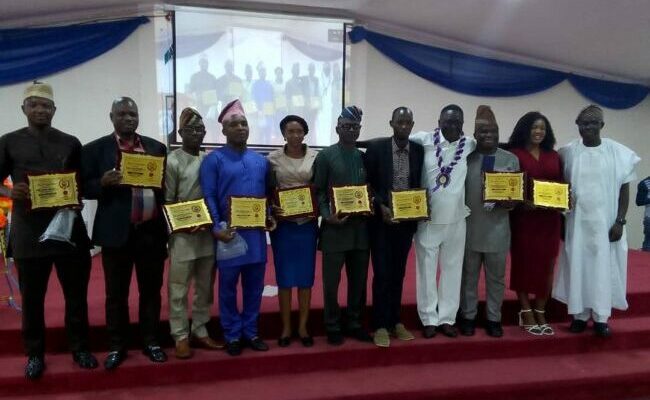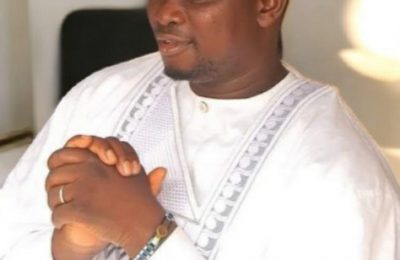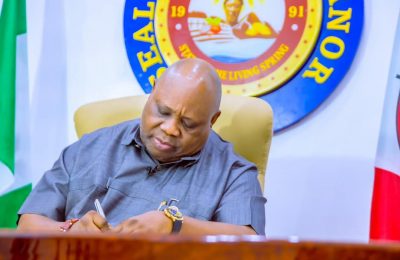

The Nigerian Society of Engineers (NSE) has urged the Federal Government to encourage a multi-stakeholder approach to finding solutions to the challenges facing Nigeria’s energy sector.
This demand, amongst several others, was part of resolutions of the NSE, Oluyole branch, during its 7th Engr. Ifedayo Akintunde Annual Engineering Lecture in Ibadan on Monday.

The lecture was in collaboration with Lead City University, Ibadan.
The annual lecture which had the Acting Director, Renewable and Rural Power Access Department, Federal Ministry of Power, Dr Owolabi Adio, as guest lecturer.
The guest lecture allowed professionals and academic stakeholders to discuss current issues and advancements in Nigeria’s energy sector to evolve robust solutions to challenges facing the sector.
In a communique listing the resolutions, released at the end of the lecture, NSE urged the government to come up with initiatives that would provide a platform for experts.
The communique resolved that such an initiative would serve as an avenue for experts to share best practices, technical expertise, and policy innovations.
The 7th annual lecture topic, ‘Expanding Energy Access and Security in Nigeria’ focused on harnessing collective actions to provide national access to sustainable energy supply.
The experts observed some of the challenges facing Nigeria’s Energy sector at the level of infrastructure deficiencies as well as financial and regulatory considerations.
Some included: aging infrastructure; transmission and distribution losses as well as limited grid coverage.
The NSE also highlighted the challenges of complicated electricity tariffs, regulatory barriers, dependence on fossil fuels and environmental degradation.
Others include resource depletion as an issue calling for urgent attention in Nigeria’s energy sector.
The experts faulted the inability of successive governments in Nigeria to effectively address the various challenges facing the energy sector which has been the bane of energy access expansion and security.
NSE further urged the government to ensure distance reduction between power generation and distribution substations to bring down transmission losses.
Thus, they advocated encouraging semi-autonomous mini-grids at the state level in addition to the implementation of policies that support financing for renewable energy.
“The existing energy policies are due for review to evolve a strategy for grid modernisation, energy storage, and other enabling infrastructure to integrate renewable energy alternatives.
“Efforts should be made to make renewable energy solutions more affordable and accessible to the general population.
“This may involve concessional financing for emerging players, as well as policies and regulations that reduce the final consumer costs.
“There is the need for the government to work with relevant stakeholders to develop and implement strategic action plans that will lay a good foundation for a successful transition to cleaner energy sources.
“Federal Government should support the development of isolated mini-grid systems, especially in rural communities, to provide reliable electricity access where grid expansion was not feasible.
“Nigeria needs to develop comprehensive grid collapse response and restoration plans, “it said.
In his opening remarks, the Chairman NSE Oluyole branch, Dr Adewale Ikotun, said that the society had been playing an active role in the development of Science, Technology, Engineering and Mathematics (STEM).
He added that the annual lecture honouree, Engr. Ifedayo Akintunde has made a significant contribution to the development of Engineering and Technology at national and global levels.
Noting that Akintunde was an astute leader and President of the Nigerian Society of Engineers and Vice President of the World Federation of Engineering Organisation.
Also speaking, the Vice-Chancellor, Lead City University, Prof. Kabiru Adeyemo, reiterated the commitment of the University’s Faculty of Engineering and Technology to Academic Research and Development in Nigeria.
Earlier, the NSE President, Engr. Margaret Oguntala said that the focus of the annual lecture was to solve critical engineering problems in Nigeria.
Represented by the Vice-President, Engr. Ademola Agoro, who doubled as chairman annual lecture planning committee, said the idea behind the focus on energy access was to proffer solutions to the energy problem in Nigeria.
ALSO READ THESE TOP STORIES FROM NIGERIAN TRIBUNE








